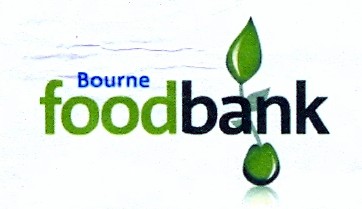|
The Bourne food bank

It was widely believed
that social deprivation would end with the creation of the welfare state
which began to emerge in the early years of the 20th century, a concept of
government based on the principles of equality, the equitable distribution
of wealth and a public responsibility for those unable to provide a good
life for themselves, and yet 100 years later the gap between rich and poor
has widened and the number that need state help increases annually.
It is against this background that we need to appraise the current
government policy of spending cuts which target the less well off,
especially those struggling to survive on low wages and drawing benefits
because they have become the nation’s new poor. Many cannot afford to keep
warm because of soaring heating bills while the easing of hunger is a
daily problem as the £ slowly loses its value and food prices increase
almost weekly. In the 19th century, these luckless people had to resort to
the soup kitchen while today it is the food bank that has become their
lifeline.
These outlets for free food began to appear in the United States almost
fifty years ago and are now evident in many parts of the world, even in
England, usually non-profit making charitable organisations that
distribute provisions to those who have difficulty in buying enough to
avoid hunger and there has been a rapid growth in them as a result of the
austerity imposed by the government in the wake of the current financial
crisis. Almost half of those who use them have had problems with their
benefits, are on low income jobs or are struggling with debt repayments
and other expenses and the demand for even more food banks is expected to
increase further when the latest welfare cuts come into effect next year.
Most food banks in this country are run by the Trussell Trust and manned
by volunteers from local churches who give out provisions directly to the
hungry. About a third of their supplies come from supermarkets although
much of it is donated by individuals. The trust was formed in 1997 to help
forgotten people such as the homeless children sleeping rough in Bulgaria
and eventually spread to the United Kingdom, expanding its activities to
all people facing hunger because of a short term crisis and there are now
more than 200 food banks in this country which last year fed more than
128,000 people. They exist in many local towns including Stamford,
Spalding, Grantham and Peterborough, and as the recession continued to
bite, plans began in December 2012 to establish one in Bourne.
Churches in the town worked with the trust to establish a centre for
storage and distribution which was eventually chosen as the schoolroom
attached to the United Reformed Church in Eastgate. One of the organisers,
the Rev Andy Warner, minister at the Baptist Church in West Street, told
The Local newspaper (7th December 2012). “This is all about our local
community pulling together to help those most in need and signposting them
to appropriate agencies to improve their situation.”
By April 2013, almost one ton of food had been collected and organisers
were preparing for an opening date the following month. Apart from the main storage centre at
the United Reformed Church, various collection points had been established
around the town and a small army of volunteers was busy adding to the
stock which included sugar, soup, puddings, tea bags, coffee, cereals,
pasta sauces, milk, fruit juices and instant mashed potato.
The scheme has been actively supported by Tesco which has a store in South
Road where the company’s policy of food collection is already underway.
All donations will be topped up by 30% as well as providing funding to
enable the distribution organisations build on their work. Other
collections were arranged at Sainsbury's supermarket in Exeter Street.
One of the volunteers, the Rev Andy McManus, of the New Day Baptist Church
at Morton, near Bourne, told the Stamford Mercury (March
29th) that the response had been amazing. “Although we have suggested just
one item from our list, some people have been coming out with bags full of
food”, he said. “Lots of children have also been involved, handing over
packs of biscuits and packets of sugar. They all seemed really pleased to
be giving something. The food bank would not be able to function without
this generosity.”
By the time the food bank eventually opened
on Tuesday 7th May, two tonnes of food had been donated and regular
collections were being held at various stores around the town. An official
launch followed on Friday 19th July by the Mayor of Bourne, Councillor
David Higgs, by which time more than 40 families had received help.
"We expect that number to double in the
coming weeks", said Mr McManus.
“This has been an incredible year. Since our early
meetings we have recruited a large number of trained volunteers from the
town ready to collect, sort and give out food and those who are visiting
the food bank are finding a welcoming venue to receive their provisions.
We have been blessed with an amazing response from shoppers who have seen
us on collecting days around the town and there have also been donations
by all of the churches.”
The distribution is being closely regulated and food is only being handed
out to people with vouchers that have been issued by health and social
care practitioners who identify those most in need.
REVISED JULY 2013

Go to:
Main Index Villages
Index
|
